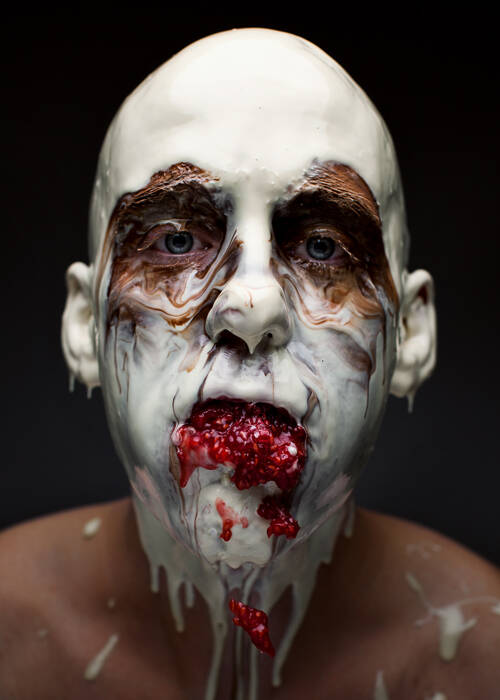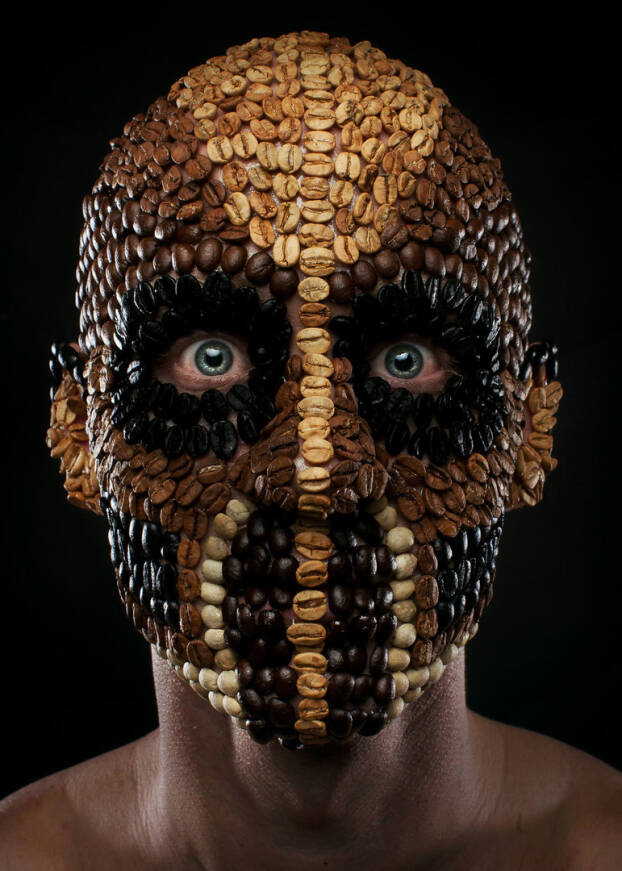Click here

Robbie Postma & Jelle Steenbergen Xiao-Er Kong Robert Harrison
Food photography is more popular than ever. #foodporn is everywhere. Nowadays, a meal isn’t really a meal without a picture to prove you had it. To ward against food becoming a shallow, meaningless experience, Chef Robbie Postma and photographer Robert Harrison shot these thought-provoking photos.
MENU
PHOTO 1
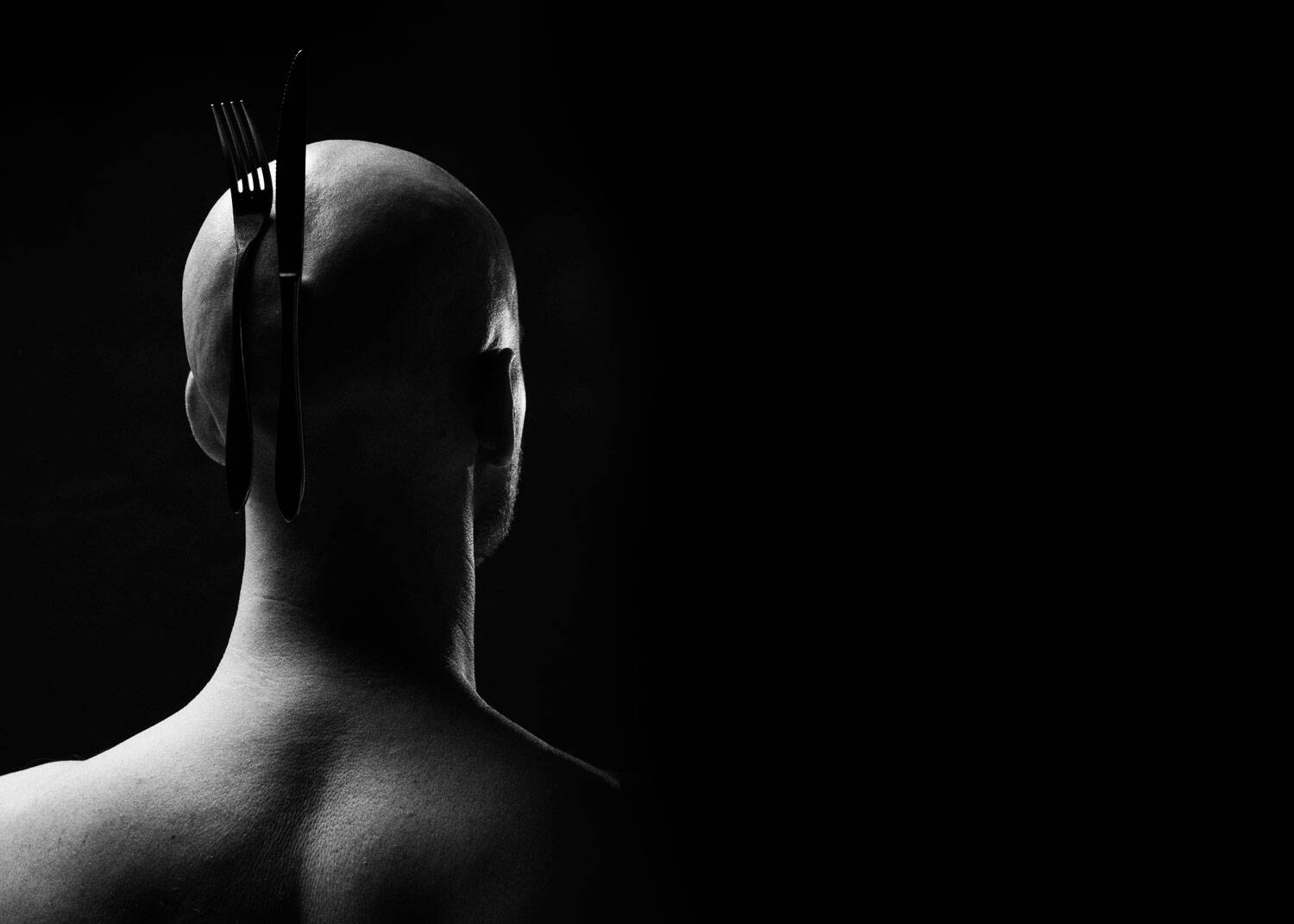
The appetizer is a dazzling display of vegetables. When creating a menu you should play with the different shapes, sizes, and colors of vegetables. The fruits of nature are transformed into a memorable experience on your plate. Enjoy!
Ingredients: various carrots, radish, and zucchini
VEGETABLES
PHOTO 1
PHOTO 2
MAIN
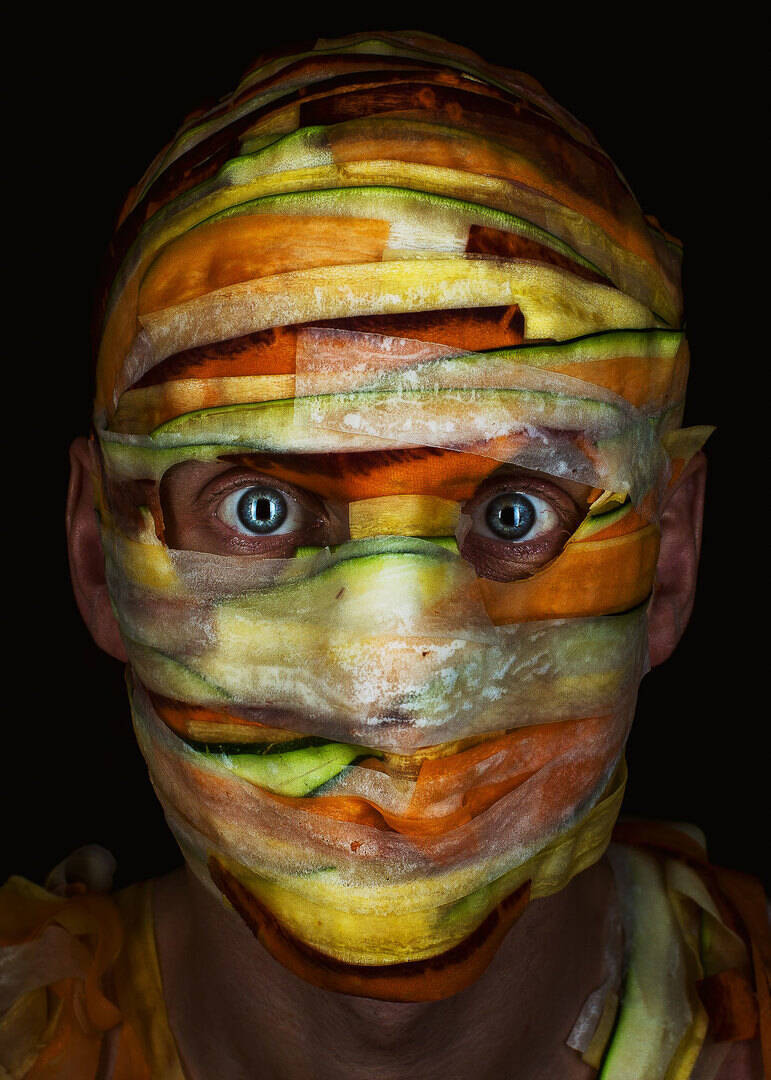
Onwards. A small selection of earth’s deep blue waters. When composing a menu consisting of multiple courses, portion your dishes so that you leave your guests wanting more and make them eager to try your next invention.
Ingredients: squid ink, lobster, mussels, mackerel skin, octopus, sea urchins, razor clams
SEAFOOD
PHOTO 2
PHOTO 3
PHOTO 1
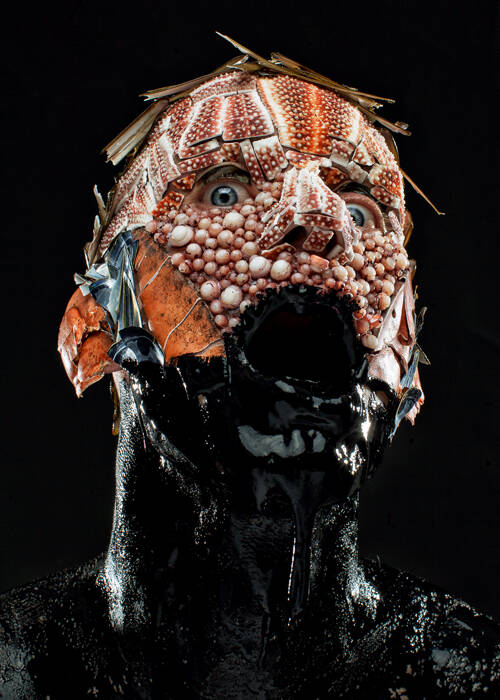
For the next dish we pair red wine to compliment the crimson color of the meat. Pairing the right type of drink with your dish is essential for maximizing the flavor.
Ingredients: a glass of red wine
WINE
PHOTO 3
PHOTO 4
PHOTO 2
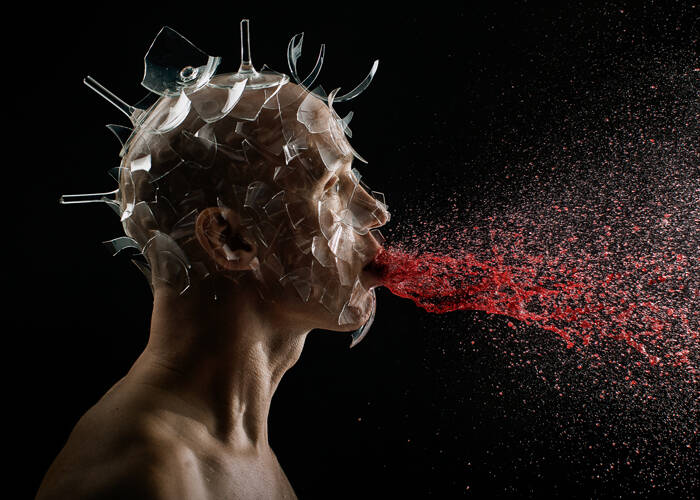
Next we serve an aged and smoked prime rib straight from the barbecue. Different cooking techniques create essential variation and intensify flavors on your menu.
Ingredients: charcoal, smoke, and aged prime rib
MEAT
PHOTO 4
PHOTO 5
PHOTO 3
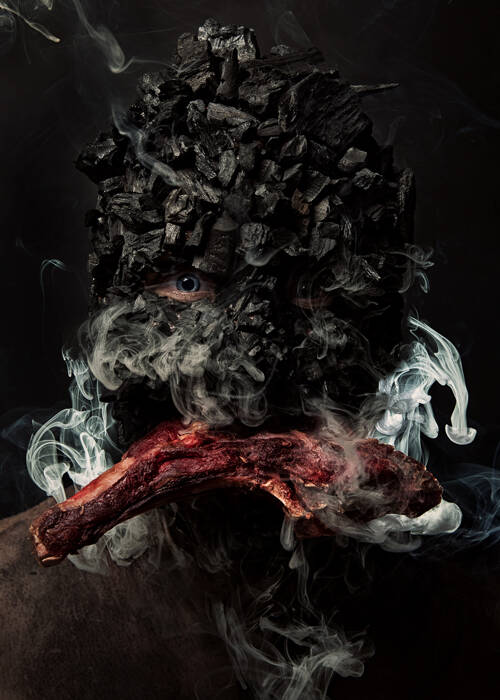
The fifth course is a slightly more complex dish using a variety of spices. Do combine different flavors and spices when creating a dish, but keep the individual elements recognizable.
Ingredients: vanilla, rock salt, star anise, cilantro seeds, nutmeg, mace, white pepper, red pepper, cardamom, cinnamon, and curry powder
SPICES
PHOTO 5
PHOTO 6
PHOTO 4
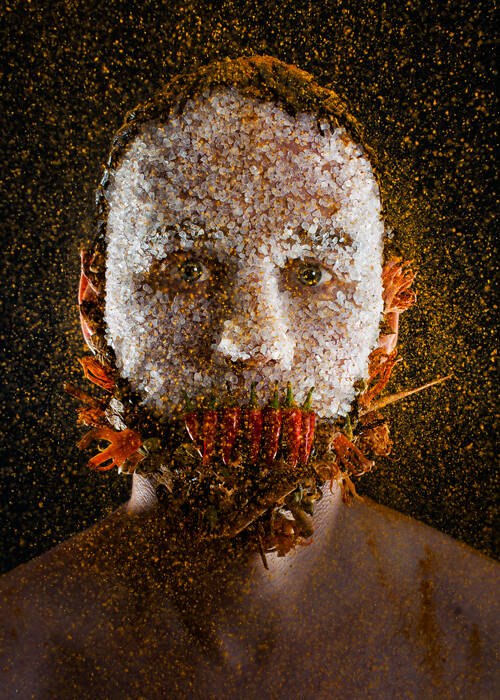
The next dish is composed of carefully selected varieties of starch. The most important thing to consider in any menu is the balance of flavor, color, texture, and shape. You need a good eye for detail.
Ingredients: black rice, white rice, yellow peas, borlotti beans, quinoa, and wheat
STARCH
PHOTO 6
PHOTO 7
PHOTO 5
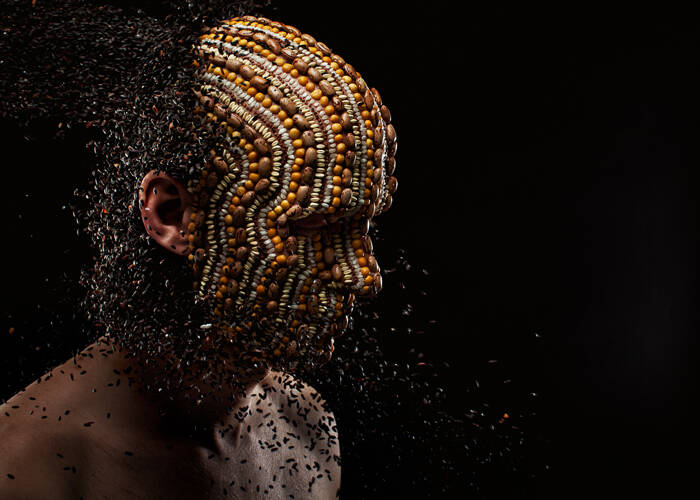
The last dish is a sweet sensation. Try to make a menu with a build-up. Each dish should be just a little bit more special than the one before in presentation and flavor. At the end of the meal, the dessert should be the proverbial cherry on top.
Ingredients: white chocolate, dark chocolate, and raspberries
DESSERT
PHOTO 7
PHOTO 8
PHOTO 6
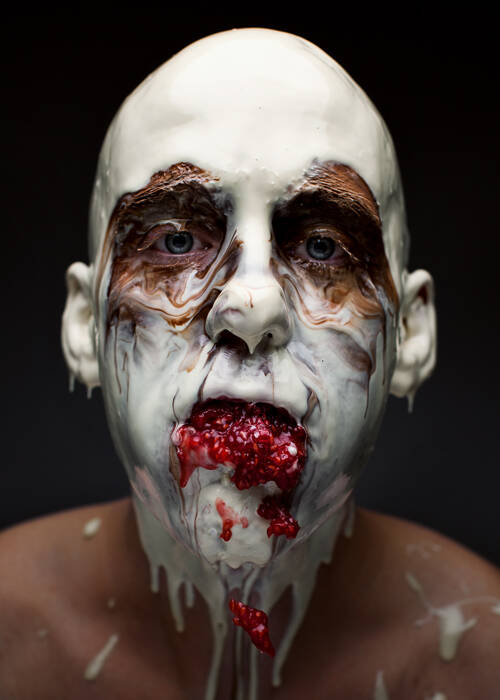
MAIN
How do you like your coffee? Coffee is a shining example of an ingredient with an endless amount of variety in flavor and preparation.
Ingredients: six different roasts of coffee beans.
COFFEE
PHOTO 8
PHOTO 7
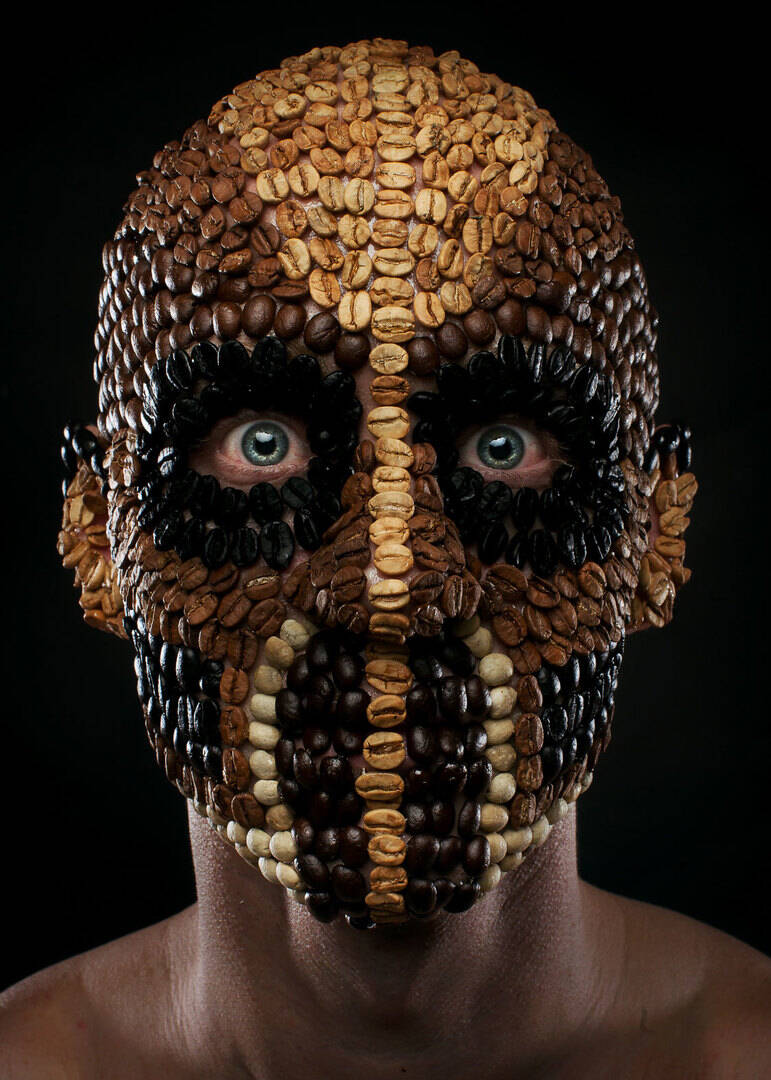
Robbie Postma & Jelle Steenbergen Xiao-Er Kong Robert Harrison
THE FOUNDATION OF FOOD
Food - like art and life in general - is more meaningful when you understand the story behind it. Chef Robbie Postma and photographer Robert Harrison tell us their story in MENU.
EYE FOR DETAIL
Instead of focusing on the final product MENU takes you to the foundation of a menu. The series follows the same principles as any chef composing a menu for their restaurant. There is a real eye for detail, composition, and preparation. Each ‘course’ is presented in a surprising and exciting way. In order to get as close to the mind of a chef as possible, MENU serves its dishes in your face, or rather on the chef’s face.
NO TRICKERY
In a show of respect for the concept of craftsmanship none of the photographs in MENU are digitally manipulated, filtered, or tricked out in any way. Each composition is crafted by hand, and each ingredient is carefully considered. Just like any chef worth his salt would do with his own dishes.
Food photography is more popular than ever. #foodporn is everywhere. Nowadays, a meal isn’t really a meal without a picture to prove you had it. To ward against food becoming a shallow, meaningless experience, Chef Robbie Postma and photographer Robert Harrison shot these thought-provoking photos.
THE FOUNDATION OF FOOD
MENU
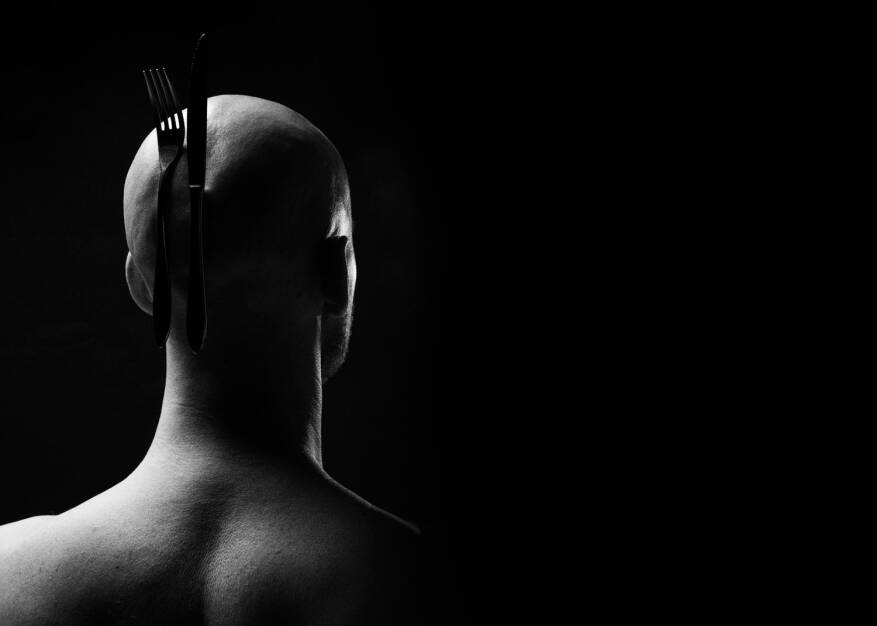
The appetizer is a dazzling display of vegetables. When creating a menu you should play with the different shapes, sizes, and colors of vegetables. The fruits of nature are transformed into a memorable experience on your plate. Enjoy!
Ingredients: various carrots, radish, and zucchini
VEGETABLES
PHOTO 1
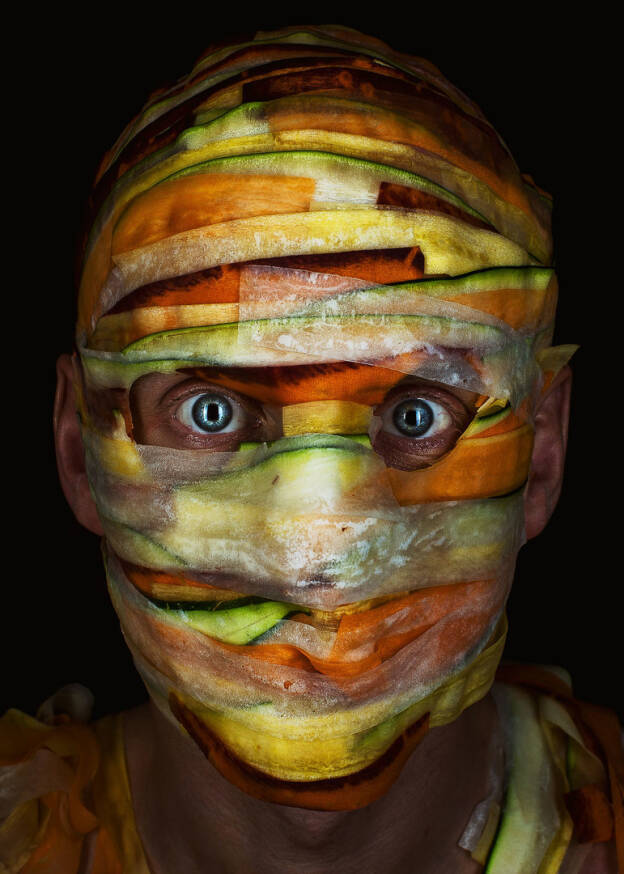
Onwards. A small selection of earth’s deep blue waters. When composing a menu consisting of multiple courses, portion your dishes so that you leave your guests wanting more and make them eager to try your next invention.
Ingredients: squid ink, lobster, mussels, mackerel skin, octopus, sea urchins, razor clams
SEAFOOD
PHOTO 2
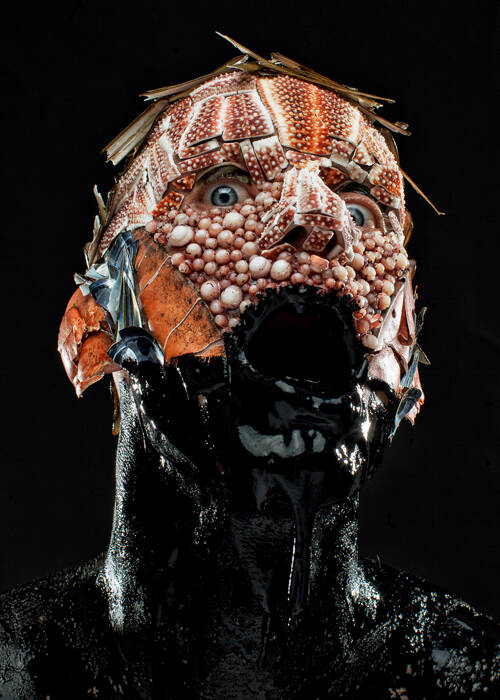
For the next dish we pair red wine to compliment the crimson color of the meat. Pairing the right type of drink with your dish is essential for maximizing the flavor.
Ingredients: a glass of red wine
WINE
PHOTO 3
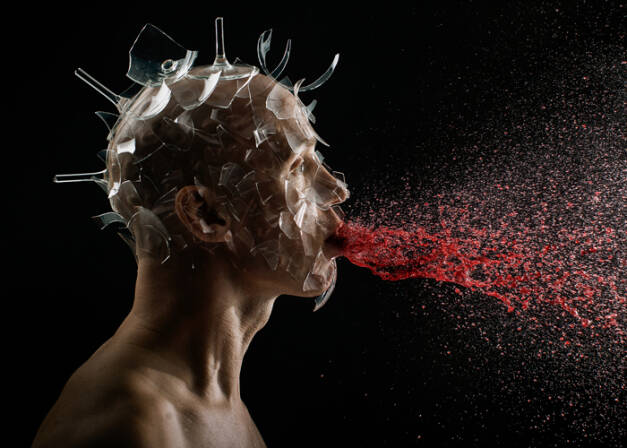
Next we serve an aged and smoked prime rib straight from the barbecue. Different cooking techniques create essential variation and intensify flavors on your menu.
Ingredients: charcoal, smoke, and aged prime rib
MEAT
PHOTO 4
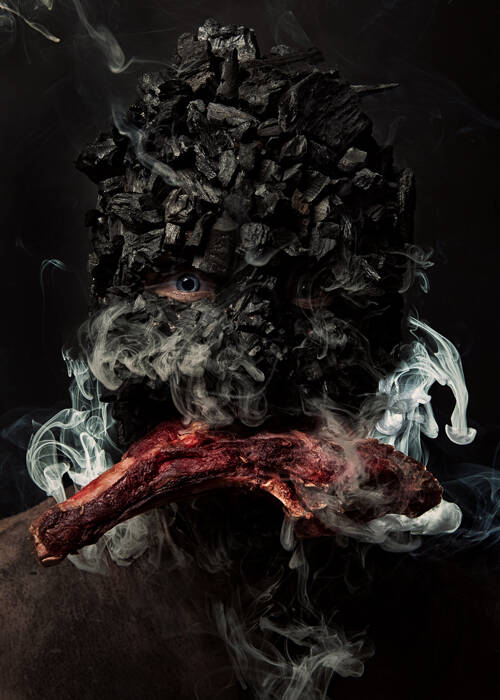
The fifth course is a slightly more complex dish using a variety of spices. Do combine different flavors and spices when creating a dish, but keep the individual elements recognizable.
Ingredients: vanilla, rock salt, star anise, cilantro seeds, nutmeg, mace, white pepper, red pepper, cardamom, cinnamon, and curry powder
SPICES
PHOTO 5
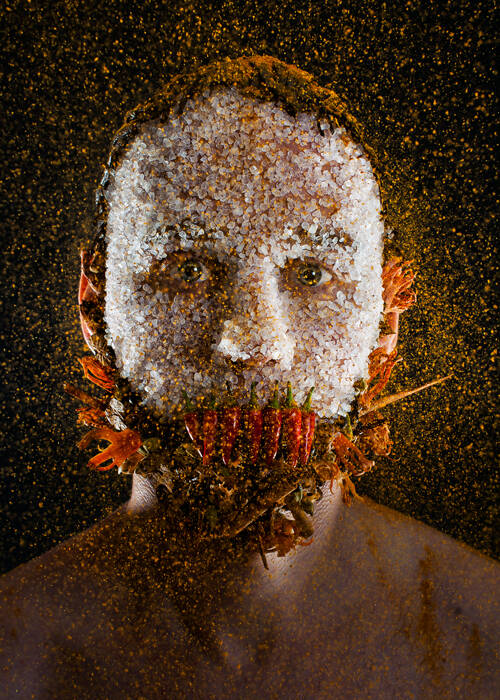
The next dish is composed of carefully selected varieties of starch. The most important thing to consider in any menu is the balance of flavor, color, texture, and shape. You need a good eye for detail.
Ingredients: black rice, white rice, yellow peas, borlotti beans, quinoa, and wheat
STARCH
PHOTO 6
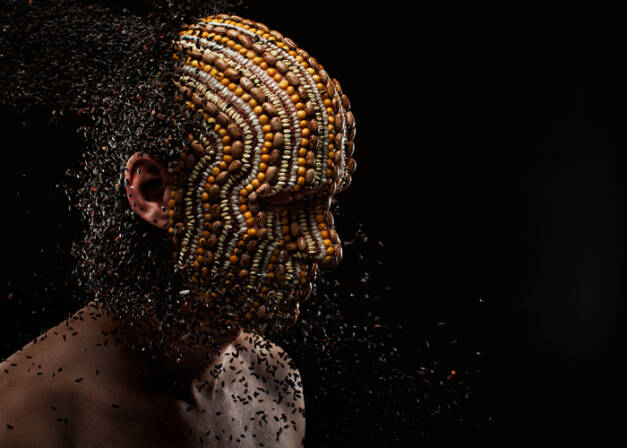
The last dish is a sweet sensation. Try to make a menu with a build-up. Each dish should be just a little bit more special than the one before in presentation and flavor. At the end of the meal, the dessert should be the proverbial cherry on top.
Ingredients: white chocolate, dark chocolate, and raspberries
DESSERT
PHOTO 7
